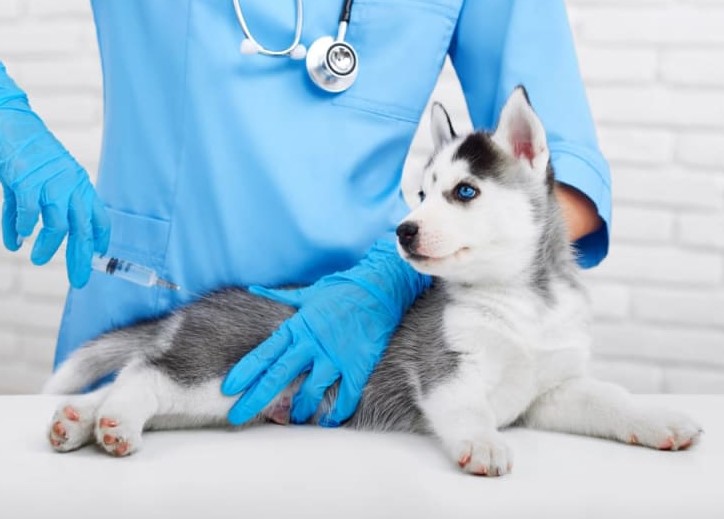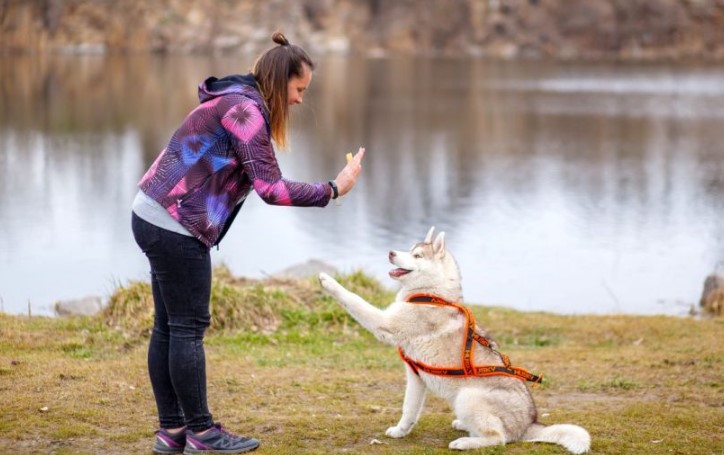
Pet Care Tips: A Comprehensive Guide to Keeping Your Pets Happy and Healthy
Introduction
Pets are more than just animals; they are beloved members of our families. As responsible pet owners, it is our duty to ensure that our furry friends receive the best care possible. In this article, we will provide you with a comprehensive guide on pet care tips to help you keep your pets happy and healthy. Whether you are a new pet owner or have had pets for years, these tips will provide valuable insights and advice to enhance the well-being of your beloved companions.
Pet Care Tips: Essential Steps to a Healthy Pet
As pet owners, we want our furry companions to live long and healthy lives. Here are some essential pet care tips to ensure the well-being of your pets:
- Provide a balanced diet: Feed your pet high-quality pet food that meets their nutritional needs. Consult your veterinarian for recommendations on the appropriate type and amount of food for your pet’s breed, age, and health condition.
- Schedule regular veterinary check-ups: Routine visits to the veterinarian are crucial for preventive care and early detection of any health issues. Your vet can provide vaccinations, perform wellness exams, and offer advice on maintaining your pet’s overall health.
- Maintain a proper exercise routine: Regular exercise is essential for your pet’s physical and mental well-being. Take your dog for daily walks, engage your cat in play sessions, or provide toys for your pet bird to keep them active and stimulated.
- Keep your pet hydrated: Ensure that your pet always has access to fresh and clean water. Hydration is vital for their overall health, particularly during hot weather or after physical activities.
- Create a safe environment: Pet-proof your home by removing any potential hazards such as toxic plants, small objects, or chemicals that could harm your pet. Install safety gates and secure windows and doors to prevent accidents and escapes.
Nutrition: Feeding Your Pets the Right Way
Proper nutrition is the foundation of a healthy pet. Here are some pet care tips regarding nutrition:
- Choose the right pet food: Look for high-quality pet food that is specifically formulated for your pet’s age, size, and dietary needs. Read the ingredient list and ensure that real meat is listed as the primary ingredient.
- Portion control: Avoid overfeeding your pet, as obesity can lead to various health issues. Follow the recommended portion sizes provided on the pet food packaging, or consult your vet for personalized feeding guidelines.
- Avoid table scraps: Human food, especially certain ingredients like chocolate, onions, and grapes, can be toxic to pets. Refrain from feeding them table scraps and stick to a balanced pet diet.
- Treats in moderation: Treats are a great way to reward your pet or train them, but they should be given in moderation. Opt for healthy treats made specifically for pets and avoid treats high in sugars and additives.
- Gradual dietary changes: If you need to switch your pet’s diet, do it gradually by mixing the new food with the old one over a week. This helps prevent digestive upsets and allows your pet’s system to adjust to the new diet.
Exercise and Play: Keeping Your Pets Active and Engaged
Physical exercise and mental stimulation are vital for your pet’s well-being. Consider the following pet care tips to keep them active and engaged:
- Daily walks: Dogs need regular walks to burn off excess energy and maintain a healthy weight. Aim for at least 30 minutes of exercise per day, adjusting the duration based on your dog’s breed and energy level.
- Interactive toys: Provide your pets with interactive toys that stimulate their minds and keep them entertained. Puzzle toys, treat-dispensing toys, and balls can provide hours of fun and mental stimulation.
- Playtime with cats: Cats enjoy play sessions that mimic hunting behaviors. Use toys like feather wands, laser pointers, or interactive cat toys to engage your feline friend in physical activity.
- Mental enrichment: Engage your pet’s brain by teaching them new tricks or providing them with food puzzle toys. Mental stimulation helps prevent boredom and destructive behaviors.
- Consider pet socialization: Dogs, in particular, benefit from socializing with other dogs and people. Arrange playdates with friendly dogs or enroll them in obedience classes to promote positive interactions.
Grooming: Maintaining Your Pet’s Hygiene and Appearance
Regular grooming not only keeps your pet looking their best but also promotes their overall health. Follow these pet care tips for proper grooming:
- Brushing: Brush your pet’s coat regularly to remove loose fur, prevent matting, and promote healthy skin and coat. Different breeds require different types of brushes, so consult with a groomer or vet for specific recommendations.
- Bathing: Bathe your pet as needed using pet-friendly shampoo. Avoid over-bathing, as it can strip the natural oils from their skin. Use warm water and make sure to dry them thoroughly afterward.
- Nail care: Trim your pet’s nails regularly to prevent them from becoming too long and causing discomfort or difficulty walking. If you are unsure how to do it, consult a professional groomer or your veterinarian.
- Dental hygiene: Dental health is crucial for your pet’s overall well-being. Brush their teeth regularly with a pet-safe toothbrush and toothpaste. Additionally, offer dental chews or toys that promote oral hygiene.
- Ear and eye care: Inspect your pet’s ears and eyes regularly for any signs of infection, discharge, or redness. Clean their ears with a veterinarian-recommended solution and gently wipe their eyes with a damp cloth if needed.
Training and Behavior: Nurturing Well-Behaved Pets
Proper training and behavior management are essential for creating a harmonious bond with your pet. Consider the following pet care tips for training and behavior:
- Start early: Begin training your pet from an early age to establish good behaviors and manners. Use positive reinforcement techniques such as treats, praise, and rewards to encourage desired behaviors.
- Basic commands: Teach your pet basic commands like sit, stay, come, and down. These commands not only ensure their safety but also make everyday interactions easier and more enjoyable.
- Socialization: Expose your pet to various environments, people, and animals to develop their social skills. Gradual exposure and positive experiences help prevent fear or aggression towards unfamiliar situations or individuals.
- Address behavior issues promptly: If your pet displays undesirable behaviors like excessive barking, chewing, or aggression, consult with a professional trainer or animal behaviorist. They can provide guidance and techniques to address these issues effectively.
- Be patient and consistent: Training takes time and consistency, so be patient with your pet. Use positive reinforcement consistently and avoid punishment or harsh training methods, as they can have negative effects on your pet’s behavior and well-being.
Health and Wellness: Preventive Measures for a Healthy Pet
Ensuring your pet’s health and well-being goes beyond basic care. Consider the following pet care tips for their overall health:
- Vaccinations: Stay up to date with your pet’s vaccinations to protect them from common diseases. Consult your veterinarian for a vaccination schedule tailored to your pet’s needs.
- Parasite prevention: Use appropriate parasite prevention methods to protect your pet from fleas, ticks, heartworms, and other parasites. Regularly check your pet’s fur for signs of infestation and consult your vet for recommended preventive treatments.
- Regular dental care: Dental disease is common in pets and can lead to various health issues. Brush your pet’s teeth regularly, provide dental chews, and schedule professional dental cleanings as recommended by your veterinarian.
- Monitor weight and diet: Keep an eye on your pet’s weight and body condition. Obesity can lead to numerous health problems, including joint issues and diabetes. Adjust their diet and exercise routine accordingly to maintain a healthy weight.
- Spay/neuter your pet: Spaying or neutering your pet not only prevents unwanted litters but also offers several health benefits. It reduces the risk of certain cancers and behavioral problems in dogs and cats.
Safety: Creating a Safe Environment for Your Pets
Your pet’s safety is of utmost importance. Follow these pet care tips to create a safe environment:
- Secure your home: Ensure that your home is safe for your pet by securing windows, balconies, and fences to prevent accidental falls or escapes. Keep toxic substances, including household cleaners and medications, out of their reach.
- Identify your pet: Microchip your pet and ensure they wear a collar with identification tags containing your contact information. This helps increase the chances of a reunion if your pet ever gets lost.
- Secure electrical cords: Keep electrical cords out of your pet’s reach or use cord covers to prevent them from chewing on them, which can lead to electric shocks or injuries.
- Choose pet-friendly plants: Some plants are toxic to pets if ingested. Research and select pet-friendly plants for your home and garden to avoid potential poisoning incidents.
- Pool safety: If you have a swimming pool, ensure that your pet cannot access it without supervision. Install a pool cover or fence around the pool area to prevent accidents.
Traveling with Pets: Tips for Stress-Free Trips
Traveling with pets requires careful planning and preparation. Consider the following pet care tips for stress-free trips:
- Use a secure carrier: If traveling by car, secure your pet in a well-ventilated carrier or use a pet seat belt/harness to ensure their safety. For air travel, familiarize yourself with airline regulations regarding pet carriers and documentation.
- Pack essentials: Bring your pet’s essentials, including food, water, medication, leash, waste bags, and comfort items like blankets or toys. Familiar scents and familiar routines can help ease their anxiety during travel.
- Frequent breaks: During long car trips, take regular breaks to allow your pet to stretch their legs, relieve themselves, and have some water. Plan ahead and identify pet-friendly rest stops or parks along your route.
- acclimate your pet to the carrier or car: If your pet is not used to traveling, gradually acclimate them to the carrier or car by taking short trips around the block or to nearby destinations before embarking on a long journey.
- Consult your vet: Before traveling, consult your veterinarian to ensure that your pet is healthy and up to date on vaccinations. They can also provide recommendations specific to your pet’s needs and any travel restrictions or requirements.
Pet Care Tips for Different Types of Pets
Different types of pets have unique care requirements. Here are some pet care tips specific to common types of pets:
- Dog care tips:
- Provide regular exercise and mental stimulation to prevent behavioral issues.
- Train your dog to obey basic commands for their safety and your convenience.
- Socialize your dog with other dogs and people to promote positive interactions.
- Regularly groom your dog’s coat and maintain proper dental hygiene.
- Cat care tips:
- Provide a litter box and keep it clean to ensure good litter box habits.
- Offer scratching posts or pads to satisfy their natural scratching behavior.
- Provide vertical spaces like cat trees or shelves for climbing and perching.
- Play with your cat using interactive toys to keep them active and entertained.
- Bird care tips:
- Provide a spacious cage with appropriate perches, toys, and hiding spots.
- Offer a varied diet consisting of pellets, fresh fruits, vegetables, and occasional treats.
- Provide mental stimulation through toys, puzzles, and regular out-of-cage time.
- Ensure a clean environment by regularly cleaning the cage and changing food and water.
- Small mammal care tips:
- Provide a suitable cage or enclosure with ample space, bedding, and hiding spots.
- Offer a balanced diet consisting of hay, fresh vegetables, and specially formulated pellets.
- Provide toys, tunnels, and exercise wheels for physical and mental stimulation.
- Regularly clean the cage and provide fresh bedding to maintain a healthy environment.
Frequently Asked Questions (FAQs)
- Q: How often should I feed my dog?
- A: The frequency of feeding depends on your dog’s age and breed. Puppies may require three to four small meals a day, while adult dogs usually do well with two meals per day. Consult your veterinarian for personalized feeding recommendations.
- Q: How can I prevent my cat from scratching furniture?
- A: Provide your cat with suitable scratching posts or pads and redirect their attention to those when they start scratching furniture. You can also use deterrents like double-sided tape or cat-friendly sprays on furniture to discourage scratching.
- Q: What vaccinations are necessary for my puppy?
- A: Common vaccinations for puppies include distemper, parvovirus, canine hepatitis, and rabies. Consult your veterinarian for a vaccination schedule tailored to your puppy’s needs and the prevalent diseases in your area.
- Q: How often should I clean my pet’s ears?
- A: The frequency of ear cleaning depends on your pet’s breed and susceptibility to ear issues. Some pets may require weekly cleaning, while others may need it less frequently. Consult your veterinarian for guidance on ear cleaning and care.
- Q: Should I bathe my cat?
- A: Cats are generally clean animals and groom themselves effectively. However, if your cat gets dirty or has specific skin conditions, you may need to bathe them occasionally using cat-specific shampoo. Always use lukewarm water and ensure thorough drying afterward.
- Q: Can I travel with my pet bird?
- A: Yes, you can travel with pet birds, but it requires careful planning. Ensure that you have a secure and appropriately sized travel cage, and provide familiar items like perches and toys. Consult your avian veterinarian for specific recommendations and health certificates if required.
Conclusion
By following these pet care tips, you can provide the best possible care for your furry companions. Remember, each pet is unique, so adapt these tips to suit your pet’s individual needs. Withlove, attention, and proper care, you can ensure that your pets lead happy, healthy, and fulfilling lives. So, embrace your role as a responsible pet owner and enjoy the incredible bond you share with your furry friends.
Partner Site : Travel Tips, Home Decoration, Travel Tours, Home Decor, Dog Responsibility, Home Design, Auto Repair, Engineering Repair, Fashion And Textiles, Home And Garden
You May Also Like

Ocicat Cat Breed
April 26, 2024
Animal Training: Unlocking the Secrets of Effective Training Methods
August 9, 2023

